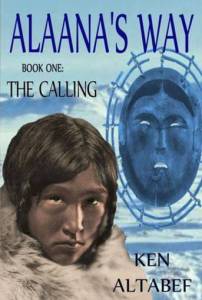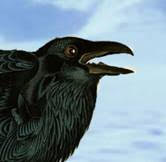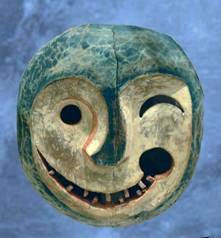 Thomas Wolfe claimed “you can’t go home again,” but the place you sprang from is never going to go away from you, that’s for sure. It’s down there in the isotopes layered into your bones and teeth. It’s there in the way your accent shifts when you go home for a visit, no matter how long away nor what education’s done to change you.
Thomas Wolfe claimed “you can’t go home again,” but the place you sprang from is never going to go away from you, that’s for sure. It’s down there in the isotopes layered into your bones and teeth. It’s there in the way your accent shifts when you go home for a visit, no matter how long away nor what education’s done to change you.
My new book, To the Bones, takes me back to the West Virginia I knew, a place both beloved for its “wild, wonderful” hills and source of despair for its history of exploitation. It also brings me home to genre fiction, after a long time wandering (mostly) in the paths of literary and mainstream writing.
The book began because I couldn’t get started. I was completing a novel-in-verse that had been long in the gestation, and was ready for the next project, but a couple of false starts had left me cranky. I complained to a writer friend about how poorly things were going. The conversation rolled around to a discussion of how to dispose of a body, and I commented, “When I was back in West Virginia, I always said that if I murdered someone, I’d throw them down a mine crack.” He challenged me to do so, and to make it a horror novel.
I was off and running, with a book that would bring together Appalachian legends, zombie movies, quest literature, ecojustice, Celtic lore, and a bit of romance. To the Bones is a satirical look at the legacy of coal mining in West Virginia through a splintered genre lens.
My years as a farmer and newspaper reporter in the northern coalfields provided both setting and substance for the novel. I’d struggled with the lack of water after mining cut off the springs and wells at my hill farm. You generally own only the “surface rights” when you buy land in coal country, which meant that subterranean water was not guaranteed, nor did I stand to profit from the capped gas well in the back field. (That property is likely fracked by now.) My land rested above part of the Farmington No. 9 mine, where an explosion 50 years ago left 78 men dead””the bodies of 19 of them left entombed because it was too dangerous to reach them. A mine crack extended over a corner of the back pasture; another marred a neighbor’s field.
As a reporter, I’d covered mine accidents, train derailments, murders, wildcat strikes, mine subsidence, town meetings and camp meetings. Those memories came back, including the lethal orange color of acid mine drainage that painted the destroyed streams.
The very shape of the land found its way into fictional Carbon County, as it did in my first novel, Neena Gathering, published in 1988 and resurrected by Permuted Press a couple of years ago as a classic post-apocalyptic story. There are many ties between my first book and this most recent outing, including a number of settings loosely based on places where I went to school, farmed, fished, and worked at newspapers. Characters end up below ground, in pits and abandoned mines and that aforementioned mine crack, because that’s just what I do””Fred Chappell remarked once that my interests were chthonic, and from Neena onward, what lies hidden or buried has served to wind taut the warp of story.
To the Bones came quickly, and I’m a slow writer, so I have the feeling I’d already been on the road “home” for a while. I published a crime drama in 2012 that’s set in tobacco country, but the protagonist is from northern Appalachia. My latest poetry collection, Leopard Lady: A Life in Verse, begins in Kentucky and follows a mid-century carnival sideshow traveling the region from Pennsylvania to South Carolina.
I’d left the mountains, but they hadn’t left me. While most people think of “Take Me Home, Country Roads” as the West Virginia state song, which it’s been since 2014, I always think that “Green Rolling Hills” addresses the Mountaineer’s pain of leaving more directly””check out the lyrics here.
In terms of genre, I’d gone away like the speaker in Utah Phillips’ song, but the joys of writing spec fiction “never let me go” and were right there waiting to welcome me back when I found that returning road.
Here’s an old-time peach cobbler recipe from among those I’ve collected over the years. In my family, the fruit went in first and some kind of dough went on top, though I’ve known some will put the dough down and pour the fruit over. I don’t know what recipe Darrick uses, but the traditional dessert plays a small role in To the Bones. Just the thing to welcome home a weary wanderer.
Peach Cobbler
6 cups peaches, sliced
1 TBSP lemon juice
1/4 C packed brown sugar
1 and 1/2 TBSP cornstarch
1/2 C water
1/2 C sugar (white)
1/2 C flour
1/2 TSP baking powder
1/4 TSP salt
2 TBSP butter, softened
1 large egg
Grease two-quart casserole.
Put peaches in, stir in lemon juice.
Stir brown sugar and cornstarch, gradually add water. Cook about 5 minutes.
Pour over peaches.
Set aside 1 TSP sugar.
Stir together sugar, flour, baking powder and salt. Stir in butter and egg until soft dough forms. Drop over peaches. Sprinkle over 1 TSP sugar.
Bake 40-45 minutes at 400 degrees F

Valerie Nieman is a poet and novelist whose first West Virginia novel, Neena Gathering, was returned to print in 2013 as a classic in post-apocalyptic literature. She’s also the author of Leopard Lady: A Life In Verse; Blood Clay, a crime drama set in North Carolina; and a collection of short stories and two additional poetry collections. To the Bones drops on June 1 from West Virginia University Press.
News and excerpts from her work can be found at:
Facebook @valerienieman1 – https://www.facebook.com/valerienieman1/
Twitter @valnieman – https://twitter.com/valnieman
Instagram @valnieman – https://www.instagram.com/valnieman/
Website valnieman.com
Enjoy this writing advice and want more content like it? Check out the classes Cat gives via the Rambo Academy for Wayward Writers, which offers both on-demand and live online writing classes for fantasy and science fiction writers from Cat and other authors, including Ann Leckie, Seanan McGuire, Fran Wilde and other talents! All classes include three free slots.
If you’re an author or other fantasy and science fiction creative, and want to do a guest blog post, please check out the guest blog post guidelines.





 I have many thoughts on the GameStop stock/stonk play. Big movements in complex systems are difficult to write about, because many things that seem paradoxical can be correct at the same time. At different scales or frames, differing takes have validity. So forgive what may seem contradictory. For those not familiar with the topic, let’s start with
I have many thoughts on the GameStop stock/stonk play. Big movements in complex systems are difficult to write about, because many things that seem paradoxical can be correct at the same time. At different scales or frames, differing takes have validity. So forgive what may seem contradictory. For those not familiar with the topic, let’s start with  PJ Manney is the author of the P.K. Dick Award-nominated (R)EVOLUTION, book 1 in a series with (ID)ENTITY, and the upcoming trilogy’s completion (CON)SCIENCE, as well as non-fiction and consulting about emerging technology, future humans, and empathy-building through storytelling. She was a former Chairperson of Humanity+, teleplay writer (Hercules–The Legendary Journeys, Xena: Warrior Princess, numerous TV pilot scripts) and film executive.
PJ Manney is the author of the P.K. Dick Award-nominated (R)EVOLUTION, book 1 in a series with (ID)ENTITY, and the upcoming trilogy’s completion (CON)SCIENCE, as well as non-fiction and consulting about emerging technology, future humans, and empathy-building through storytelling. She was a former Chairperson of Humanity+, teleplay writer (Hercules–The Legendary Journeys, Xena: Warrior Princess, numerous TV pilot scripts) and film executive. 






